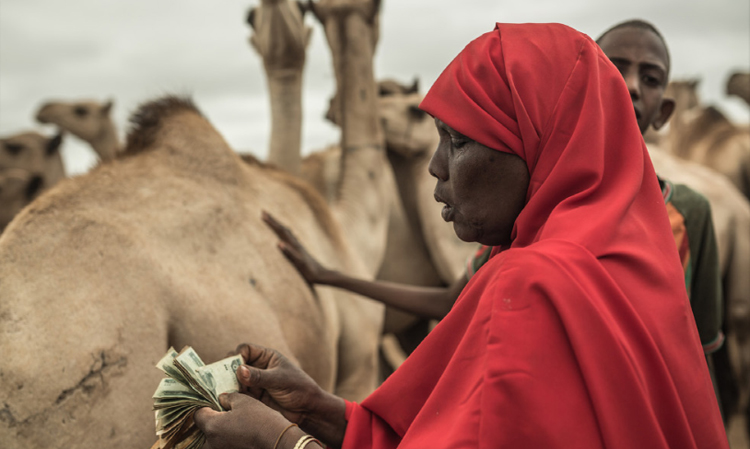
Women Economic Empowerment
One of the main lessons learned from the project is that women’s economic empowerment is a relevant strategy for resilience building. In 2011, one the worst droughts in over 60 years, affecting around 10 million in the Horn of Africa, seriously hit the Somali region. As evidence from diffe
rent countries shows, pastoralist men and women had different exposure and were affected by drought in different ways, while their capabilities to manage and cope with this drought also differed.
One of the main lessons learned from PC implemented project is that women’s economic empowerment (WEE) is a relevant strategy for resilience building. PC currently runs 2 such projects.
The main objectives of these projects focus on initiating and strengthening religiously, culturally sound saving and credit schemes for social and economic benefits of the targets; Capacitating organization of women for different common benefit and Support integrated community based social responses to multiple social and gender elements. Besides, the approach of these projects
are integrated and touches and responds on various challenges such as livelihood through economic empowerment of the pastoralist women, education and health via adult literacy education and linking of trained traditional birth attendants in safe delivery of mothers as well as addressing cultural problems related to sexual reproductive issues respectively.
Major achievements
During the reporting period 110 women headed households have been given different alternative livelihood opportunities in cooperatives schemes. These schemes include credit and saving cooperative, meat and vegetable selling cooperatives.
The cooperatives once legalized and established in their respective Woredas have been given different types of supports; providing seed money, constructions of shades (for meat selling, adult education centers & social centers gathering), and supply of different materials like office, wheel barrows & wire meshed covered tables.
Prior to the project implementation Meat shades meat were sold un-hygienically in open market which is risk for food poisons and communicable disease( typhoid & typhus) transmission. After the meat shade activity implemented these practice changed and the community started getting meat which is safe for health at the same time the women involved in this business economically empowered.
PC provided 440,000 ETB as seed money. SCC provides occasion to integrate and network and enables women to cooperate and organize to take collective action to protect their individual and collective interests at the local level
Over all the lesson learned from the intervention, is in empowering pastoralist women economically become not only economically empowered but also social leaders and models in their owncommunities.
On the other hand, PC addressed basic shelter needs for 14 female headed households who live in traditional cottages.The main problem related to shelter is unaffordability to buy iron sheets. And PC enabled such families to have roofs over their heads. The project had purchased and distributed 420 iron sheets, 30 iron sheets/HH for 14 poor HHs in Guradhamole.
Likewise, PC project also created alternative education access to 284 beneficiaries with highly trained facilitators and constructing 4 adult education shades in the target Woredas where 50 % of women beneficiaries attended the program. Project monitoring assessment indicated that almost all (80.7%) of women are able to read, write and calculate simple mathematics about profits and loses of their business engagements and enabled women to even follow up their children’s home works effectively.
During this reporting period PC have reached to 98 students (56 female) with direct cash support in Somali and Oromia Regional state. These supports mainly targets students with good grades and at the territory level that are the poorest of the poor. The support (ETB 4,000) is mainly meant for educational materials, travels and personal consumption during college time.
Last year alone, 34 of the students graduated from different Universities, colleges with distinction. PICUTRE Furthermore, PC also involved in training 50 government employees on gender mainstreaming and conducted various awareness creation workshops for more than 400 community members and local government staffs to bring communal change towards GBV/HTP in the target Woredas. It is believed that all the aforementioned engagements enhanced the knowledge and attitude of PC stakeholders in regard to GBV/HTP.
